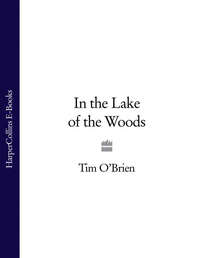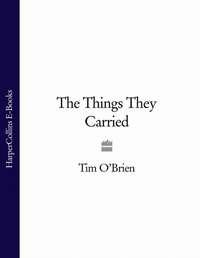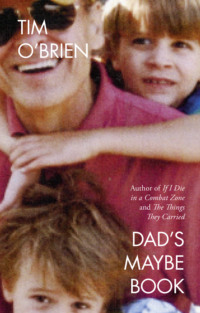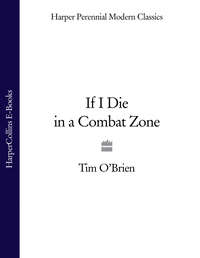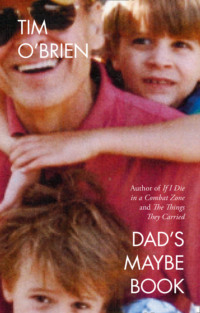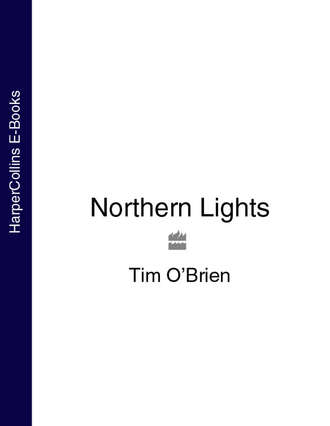
Полная версия
Northern Lights
‘Hush,’ Grace whispered. ‘He’s sleeping.’
‘Ha! Aha, you’ll see. You’ll see. The fallout’s got him, sure as hell. Look at him. Let’s examine the old gent’s testicles. Ha, that’ll tell the old tale.’
‘Just relax.’
Perry brought out four chairs. They watched the clouds roll towards the great lake.
Jud suddenly sat up. He started cackling, raised his fist up. ‘What did I say?’
The air was hot.
Energy charged out of the clouds. The sky went, wild. Thunder created a wind of its own.
‘Marvellous,’ Addie breathed.
The clouds moved fast.
‘Heat storm,’ Jud cackled. ‘What did I say?’
The storm tumbled over on itself, and there was no rain. Grace pulled her sweater tight. Addie lay back in her chair. Harvey was shivering. A slice of electricity shot like white ribbon from the clouds. ‘Marvellous,’ Addie murmured. Her eyes were black. The clouds tumbled and flopped, rushing eastwards, the lightning exploding in fluffs, the whole forest stopped. Grace whispered something. Addie’s eyes were black. She was barefoot. Her feet were under her, her legs were dark. The sky crashed. Grace was whispering. He watched Addie. Her cheekbones were high and shining. Asiatic, Indian, primitive, shining, upward looking, and the lightning flashed again, and her hair was long and back over her shoulders without knots or bows or curls. ‘We should be going in,’ Grace was whispering, but the heat storm thrashed in the forest, all around them, and the wind swept in hot, and Addie’s eyes were lighted, and Grace whispered, ‘We should go inside.’ She whispered, ‘I’m cold, hon.’
‘What?’
‘I’m cold.’
He heard her. He curled an arm around her. She could embarrass him.
Slowly the storm rolled overhead, high like a battle far off. It rolled towards the east and left a clean night sky behind it. There was no rain.
Jud Harmor stood up. ‘Show’s over,’ he announced. He’d found his straw hat. ‘I’ll be going.’
Harvey did not get up. His eyes were wide open to the sky.
Perry helped the old man to his truck. Jud climbed in and slammed the door. He leaned his head out. ‘Just a lousy heat storm,’ he said. ‘You gotta watch your brother. I think he’s insane.’
He lay there. The storm was over.
Restless, he got out of bed and went to the window. A light was burning in the bomb shelter. He showered, lay down again. ‘Sleep,’ he said. He tried not to think. Addie. It didn’t matter. Grace was awake. She whispered something.
He got up, went to the bathroom and shaved. Then he dressed. He roamed about, restless, tried to read, sat at the kitchen table. Then he went outside. The crickets were back. The lawn chairs were empty. The bomb shelter light was off and everything was quiet. He followed the path to Pliney’s Pond.
The smell could be awful. All in the mind. He sat on a rock. Addie and Harvey, the names rattled back and forth. The water was deep and quiet. The creature he’d met as a child. Pincers and black eyes attached by cords to the ganglia. A body shaped like a barber’s electric clippers. And the deep-down pond, he remembered. Addie and Harvey. No matter. The place could stink. It was algaed and full of primitive organisms.
No matter, he was older now, he wasn’t a kid, he had a wife and his father’s house. His father had taken him to the pond to learn to swim. His father. Harvey had come, too. That had been another July, and they’d gone the three of them to Pliney’s Pond and his father had said, ‘This is where you’ll learn to swim. No back talk, just jump in.’ Perry remembered undressing slowly. ‘It stinks,’ he’d cried, going in. Mosquito eggs, crayfish, larvae, slime and Junebugs, frogs and newts and snakes and toads and lizards, Indian shit and rot, and Harvey had gone in, too. Harvey had gone to the middle of the pond. ‘No back talk,’ the old man ordered, and Perry waded in, waded in and fell headlong into the stinking water, eyes in terror and sobs choked in sewage. Ash and sewage, he remembered it. Then the creature, its pincers and dangling black eyes, an inch from his face, a quarter-inch, a real monster closing in, and he’d sobbed, sucking in more of the thick water, and the creature came.
The pond did stink. There was no question. Addie and Harvey.
Perry sat on the rock. It didn’t matter. The place was quiet, the forest grew to the edge of the pond, and the pond was quiet. He relaxed. Things could be put in perspective. That was what had to be done. He dipped into the pond and took out a handful of water and let it straight through his fingers. Harvey and Addie, some luck. The water left a black residue. It was late. It was always getting late. He decided it was time for reformation. Begin exercising. Eat less. He would be kind to Grace; she deserved it. He would be kind to Harvey. He would get involved, paint the house, go into the woods, go deep. He heard a loon. It was far off. It wasn’t such a bad night. It was getting cool. Harvey was fine. Addie was fine; she was something else again. The way she walked, heels down. Grace was fine, too. The loon called again and he got up.
Things were always better. He brushed himself off, followed the path to the house. There were no lights. The bomb shelter crouched low in the yard. There were no lights anywhere.
He folded up the lawn chairs, carried them to the porch and stacked them. He was careful to be quiet. He looked up and smiled. The sky was surprisingly light, and there was a moon and many stars.
‘Feel better?’ Grace whispered.
‘Yes. I had a walk.’
The sheets were cool now, and Perry held her.
‘Tired?’
‘Hmmm, I was sleeping. Storm over?’
‘All quiet. Getting nice out there.’
‘Rain.’
‘No. No rain yet. It’ll come.’
She whispered. ‘Your face is burnt.’
‘It’s all right. I feel better. I don’t know what gets into me.’
‘Let’s put some cream on your face.’ She gently touched his nose. Perry took her hand. ‘You are a woman,’ he said. ‘Gee,’ she whispered. She got the cream from the nightstand. They undressed and Perry lay face up on the bed. He closed his eyes. He breathed easy. He felt the lotion on his chest. He did feel better. He breathed slowly. ‘What are you doing?’
‘Putting lotion on you,’ she whispered. ‘Hold still now.’
But he wasn’t thinking. He was tired. Wings clipped by the old man. No bulls here. Rushing from nowhere to nowhere and learning to swim. ‘Just lie still now,’ she whispered. But he wasn’t listening because the thick waters were against his ears. ‘Shhhhhh,’ she whispered, ‘does that feel good now? Lie still, lie still,’ part of the pond, soft as water. He concentrated, finally opening his eyes, and she smiled at him. She reached in the dark for a tissue and wiped him. ‘Such a fountain,’ she whispered.
‘Come here.’
‘Can we have a baby someday?’
‘Come here.’
Soft as water. He tightened his arms, squeezing, and he held her and squeezed, all his energy, squeezed until she said to stop.
ELEMENTS
They called it a dying town. People were always saying it: Sawmill Landing won’t last another decade. But for all the talk, Perry never saw the death, only the shabby circumstances of the movements around him. It was a melancholia, seeded in the elements, but he had no idea where it started. It might have started with the Ice Age. Four glaciers advancing and receding over the course of a million years, freezing, stinging with crystalline cold, digging out boulders, ice a mile deep, a permanent stillness. Then the Stone Age. Indians. First the Sioux, later the Chippewa. In the basement of the town library there was a museum that housed all the relics: broadheads, pottery, clay pipes, hides and drawings. Then the French, taking what they could. Then the Swedes. The Swedes built houses. Pine planks, dirt floors, hard-rock fireplaces. The Swedes hacked at the forest, broke their backs and ploughs trying to turn the Arrowhead into corn-bearing land.
In 1854, the Chippewa ceded their timber and fish and game for a few hundred square miles of reservation.
In 1856, the Swedes named their hamlet Rabisholm. Fourteen houses, a blacksmith, twenty-six horses, a stable and a store. That same year Minnesota became a state.
In 1857, the Germans came. And a few Dutch and the Finns.
In 1858, an Indian boy was hanged for intention to rape. In 1859, an Indian family was found frozen in the snow, dead of starvation before freezing. In 1860, two full-grown Indian males were shot dead while stealing corn from Ole Borg. In 1862, while the southern Sioux were going crazy with revenge, three Chippewa renegades slipped into Ole Borg’s house and cracked his skull with a hatchet. The renegades were later captured by a cavalry troop dispatched from Fort Snelling. They were hanged until dead.
In 1863, the town celebrated its first Ole Borg Day.
In ten easy years, the Indians were gone, pushed north and west.
Perry learned about the hardships. Hardship was something the old man stressed. He learned that the Swedes broke ploughs on base rock, got robbed on prices, seeded soil meant for spruce and not corn, wore silent hard faces. They were blond. He learned that they left Sweden in famine and, in perfect irony, came to Minnesota just in time for more of the same: locusts and drought, fierce winter and boulders; they left bad soil for worse soil, rock for rock, pine for pine. In some miserable genetic cycle, they did not leave at all and they did not arrive.
The Germans came later. The Germans came late enough to see that their future was not in the land. Instead they opened taverns and a hardware store and an implement shop, taking the Swedes’ money, extending credit, turning the bundle of tiny farms into a hamlet. Within a few years it became a predominantly German village, both in numbers and power, but the Swedes still remained vital to the tight circle of economics, because without them there was no need for German shops. Old World rivalries persisted, and Perry heard the story often: In 1863 a meeting was convened to choose the village’s soldiers for the war against slavery. No one understood the war, but everyone wanted to fight it. They hadn’t heard how many were dying. At the meeting it was decided that only a few could go, and after hours of haggling the number was fixed at fourteen, a quarter of the able-bodied men. The Germans, citing their new predominance, insisted on supplying ten of the fourteen. The Swedes wanted the war party split equally, arguing that they’d been the first to settle the forest, that they had eight more corpses in the cemetery, and that their farming sustained the small community. In short, Perry’s father had explained with relish, in short they were arguing about the right to die. ‘Well,’ the old man said, telling the story, ‘the Germans threatened to foreclose on two mortgages. Herb Wolff’s great-grandfather was one of the bastards. Anyhow, the Swedes told them to go to hell, threatening to take their corn and trade into Two Harbors. So the krauts threatened to close down their shops. And the Swedes threatened to boycott the shops. And the krauts threatened no more credit. On and on. Well, next thing you know there’s a scuffle and somebody knocks over a lamp and the meeting hall catches fire, threatening a forest fire, threatening everything. And that, if you see the point, that was the final threat.’
‘Yes,’ Perry had said.
‘And what’s the point?’
‘A big forest fire. The end of the whole village.’
‘Exactly,’ the old man had crowed, opening his Bible. ‘The end of everything. The end of the world.’ His voice rang like an old bell.
In the end, a single young Swede went to the war and fought with the Minnesota First at Gettysburg. He was buried in the Swedish half of the cemetery, solidifying the Scandinavians’ grasp on the land, another root sunk deep in. For reprisal, the Germans convened a secret meeting and voted to change the name of the place from Rabisholm to New Köln. The Swedes simply ignored the vote, and until 1887 the village had two names and the matter was taken quite for granted.
In 1887, the timber companies moved in.
They built their sawmill on Dunkle Creek and named the place Sawmill Landing.
It became a logging town – a town now and not a village. Simple frame houses went up, each identical to the next with their wide porches and crawl spaces and stone fireplaces and upstairs bedrooms. It became a company town. Using the sawmill as a hub, the timber companies laid the streets like spokes into the forest, seven spokes that radiated into the timberlands, and as the forest was cut and gutted, the spokes were simply extended and the town expanded. Each spoke was given a name: Acorn Street, Larry’s Lane, Moose Street, Apple Street, Broken Axle Road, Sawmill Street and Mainstreet.
For nearly thirty years the logging companies ran the town, and the population climbed over a thousand. A school was built. And a jail and a town hall. The timber companies tarred Mainstreet and cut a highway out to North Shore Drive. An undertaker set up shop. A railroad spur was laid, a depot was built, new wells were dug, a water tower went up. The timber companies built a pulp mill and a planing mill, changed Ole Borg Day to Paul Bunyan Day, and, indirectly through the labours of their wage earners, paid for the construction of Damascus Lutheran Church. ‘That,’ Perry’s father had said with a customary spit at progress, ‘that was the only decent thing.’
The timber companies also brought a second wave of Finns into Sawmill Landing. They were gaunt families, blank-eyed and harsh and disciplined by tundra spirits, wide foreheads and black eyes and strong arms. Among the new Finns was Perry’s own grandfather.
The facts of Pehr Peri’s life were as bare and brittle as the scattered bones of some ancient reptile. All that was known came from the memory of Perry’s father and from a tiny packet of papers buried in the attic. Up to a point the story was typical. Pehr Peri was born in a fishing community north of Helsinki. At sixteen, for reasons unknown, he boarded a boat for America, spent a year of near starvation in Baltimore, worked his way west to St Louis, then boarded another boat that took him up the Mississippi as far as Red Wing.
For the next five years, young Pehr Peri was swallowed in a dark succession of lumber camps and pine forests, gradually moving north with the advancing timber companies, working first as a shanty boy, later as a swarmer hacking branches from felled trees, and finally as a fully-fledged lumberjack. While the specific events of that lustrum were murky, it was probably the story of thousands like him: immigrants homesick for the Old World, hard winters, danger, relentless work, fist fights, mosquitoes and loneliness and barracks yarns, campfires and boredom, northern hardships, frontier trials. Whatever the specifics, Pehr Peri emerged at the age of twenty-two in a camp outside Sawmill Landing – tall and strong, virtually illiterate, speaking a hybrid of Finnish and English and Norwegian, unmarried. And the father of a young son.
Sometime during those dark five years, in circumstances that could only be imagined, the young Pehr Peri had spent enough time out of the cold to sire a son, to see it through birth and to take the child with him. It was never explained. The identity of the mother, as well as the means by which Peri gained custody of the boy, was never told. The only clue – a minor one – was that the child was baptized Pehr Lindstrom Peri, and it was assumed that the mysterious woman, wife or mistress or lover, belonged to one of nearly three hundred Lindstrom families scattered between Red Wing and Sawmill Landing. But it was never known. In customary and callous disregard for reminiscence, Pehr Peri raised the child as though he alone were responsible for its propagation, refusing to talk about the mother, ignoring the very fact of motherhood, an asexual northern temperament that excluded and eventually scorned things female. ‘I didn’t have a mother,’ Perry’s father once explained, ‘because I didn’t need one.’
For more than a year, Pehr Peri continued working the forests outside Sawmill Landing, leaving the child in the daytime care of assorted shanty boys, camp cooks or idlers. Then, in August of 1901, his right arm was crushed in an incident that again went unexplained. In one of the few scraps of paper he left behind, Peri referred to the accident as a ‘thing which happened’, accepting the crushed arm as a timber wolf might accept a broken leg, without bitterness or remorse, burning eyes, a natural thing of the north. Hardship was to be expected. At any rate, Perry’s grandfather was out of a job, saddled with a motherless child, crippled, stranded in a town that offered nothing but hard work. So he became a preacher.
Despite the contradictions and ironies – semi-literate, not a trace of prior religious zeal, barely able to speak English – Pehr Peri became a successful stump preacher, shuttling from camp to camp, travelling by foot with his young son and a secondhand Bible and a store of winter tales, preaching a mixture of folklore and Christianity and Finnish mythology, relying as much on his native Kalevala as on Matthew, Mark, Luke or John. In time he became something of a hero in the outlying camps. He spoke their idiom, shanty talk that blended accents with nationalities and common experience. And he was also a born preacher. A preacher, not a minister. His sermons called for no acts of repentance, offered no hope of salvation, anointed nobody, elected nobody, promised nothing to the choppers and swarmers and barkers, ignored heaven and delineated only hell. His promise was that things would get worse, and his theme was apocalypse: forest fire, death in the snow, a new Ice Age. He was a preacher of the elements, more pagan than Christian, appealing to the only true emotion of his frontier congregations, which was fear. Looking through a few of the old sermons, Perry saw in his grandfather a simple glacial floe and a frozen spirit. The sermons called merely for heroism. Urho, in the Finnish. Practised endurance, silent suffering, fortitude. His symbols were snow and timber wolves, the forest afire, the world ending, the town collapsing. His hero was the bull. The Bull of Karelia, a moose with antlers gone and head down in the dead of winter. Pehr Peri left the lumber camps with the certainty that there was no alternative but to go on, which was what everyone was best at anyway. So, with a reputation anchored in realities, it was a natural course of events that culminated in his assuming the pulpit of a brand-new church called Damascus Lutheran. And even with a congregation of shop owners and farmers and wives, Pehr Peri never relented in his stern predictions of hardship and collapse. The more vivid his prophecies, the more popular he became, drawing audiences from as far down as Two Harbors and as far north as Grand Marais. Never exhorting, he merely laid down hard principles: the strong will not survive forever, but they may survive longer than the weak; things are bad now but in the winter they will be much worse, so take advantage of the present and prepare for the future. Since his ultimate prophecy of doom was always rooted in stories of present suffering, and since there were always ample cases of forest fire, hard winters, drownings or freezings or death, he could never be faulted for poor vision nor accused of promising too much. He saw no hope and offered none. Strokes of good fortune, he reminded the Damascus Lutherans, are forever followed by bad fortune; summer to winter; birth to death; construction to destruction; the elements. He was never wrong. He preached simple heroism. What cannot be escaped must be endured, and if it must be endured it might as well be confronted.
Pehr Peri taught his singular lesson with conviction. And he taught his son, who listened.
So in 1915, when the timber companies left Sawmill Landing, it was seen as something to be endured, a dying town, a minor collapse in a world of collapse, so inevitable that no effort was made to save the place. Rusting machinery, uncut weeds, unpainted buildings, unstopped forest. And in 1919, when Pehr Peri hanged himself from the rafters of Damascus Lutheran, his son was ready to endure, having listened. In a natural succession to the pulpit, Pehr Lindstrom Peri presided at his father’s funeral, buried him in pine in the old cemetery, and the following Sunday preached that Sawmill Landing was a dying town, that there was no sense trying to escape it because the next town may already be dead and the next on the verge of death, that the Ice Age was returning, ice a mile thick, a glacier that would level the forest and fill the lakes, the sun would turn black and the moon red as blood. And as though to demonstrate the flux, Pehr Lindstrom Peri journeyed the next day to Silver Bay, where he changed the family name to Perry and eliminated his middle name, his mother’s name, for he did not need it.
Perry’s first memory of his father was neither striking nor unusual: a holiday, Thanksgiving or Christmas, snow on the ground, his mother only a pleasant shadow beside him as they huddled in the house to wait out a storm, his father nervously watching the snow through the kitchen window. His second memory, unconnected to the first except through later association, was of a long sobbing sound, the snow still blowing, a baby crying and his father wiping bloody hands. His third memory was of great loss. The house was stone cold. His father was holding a child, rocking before the fire, and the sobbing sound ran through the house like the wind.
The three memories might have been separated by years or seconds.
Later, as he recognized Harvey as a brother, he remembered other things: his father preaching the apocalypse, the word throbbing in four full-bodied syllables like the chiming of a bronze bell. The cold house. Harvey and the old man going off somewhere in the woods. The feeling of cold. Harvey playing football. The old man watching with blank eyes. Harvey fighting. The old man dying, ringing with a spoon in his spit bucket. Harvey digging a bomb shelter for the dying old man, pouring cement, stringing electric lights so as to work at night. Gaunt nightlong images, partly a combination of human beings and events, partly the town, partly the place, partly a genetic fix, an alchemy of circumstance. He could not find the start.
Perry carried the rucksack, Harvey plunged ahead. They passed Pliney’s Pond and continued on. Hornwort and water moss grew along the path, in the shallow-cut parts of the forest. It had finally rained and the forest was soggy. Twice the path appeared to end in a tangle, but Harvey would push away the brush and the path was always there. They walked single file. The bushes leaned in from both sides, parting like water and Harvey pointed out the trees and gave their Latin names. He showed where mushrooms grew and explained how they should be eaten and how a man could survive for years in the woods if he knew what was what. The trail was black dirt. It twisted through alternating growths of birch and pine, slim white trunks with maroon leaves. The earth was springy from decay and rot. Harvey seemed very happy. They crossed a meadow, turned on to an old logging road that followed a creek into the thick forest. Perry walked fast. He’d lost nearly five pounds. It was a fresh day. Sometimes he could hear the creek rushing off to the left, bubbling against the rocks, and Harvey kept talking, explaining things, pushing on. He showed where poison ivy and poison oak and maidenhair grew. He was quite expert. The forest grew high and thick, big enough for harvesting, monster trees with gnarled roots that lay like fossils across the path.
Eventually the trail ended, facing dead into the woods.
‘Nice, isn’t it?’ Harvey said.
‘Fine.’
‘This is really it. I told you it was nice. What do you think?’
‘I like it. Spectacular.’
‘I told you.’ Harvey pointed into the brunt of the forest. ‘Out there is the real stuff. That’s the wilderness.’
‘Where do we swim?’
‘Out there,’ Harvey grinned. ‘These trails we’ve been following are white-man made. Loggers mostly. But this is as far as they come, and out there you won’t find anything. This is where the logging stopped.’ He pointed to where the trail widened. ‘See here? The wagons turned around here and went back. This is as far as they ever came. Isn’t it something?’


